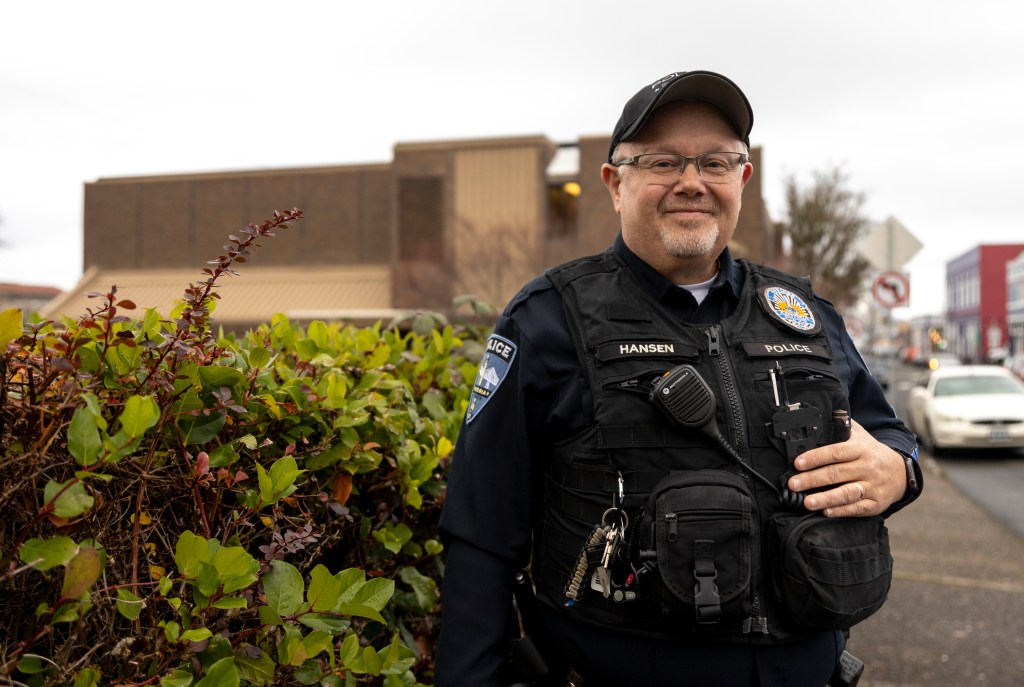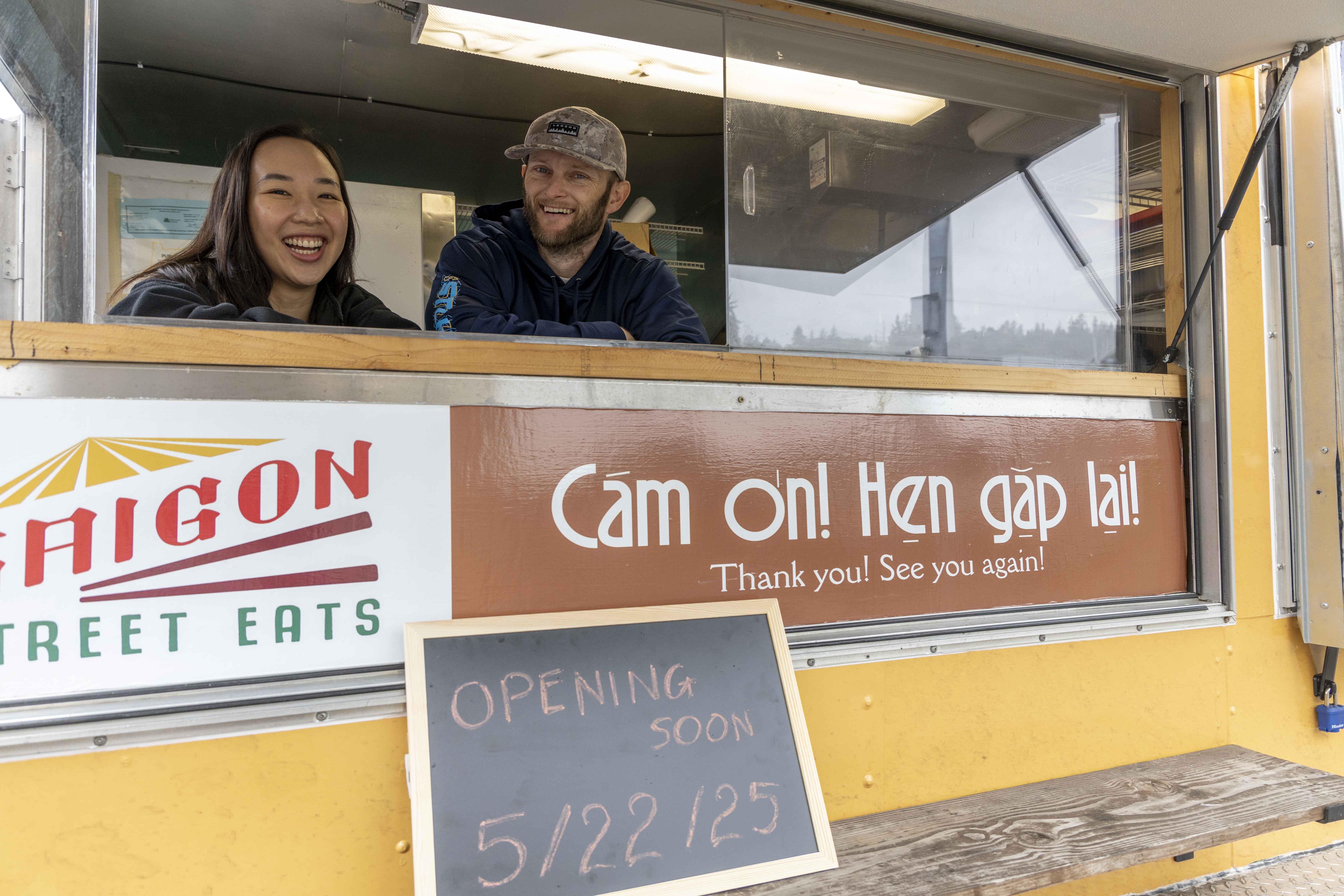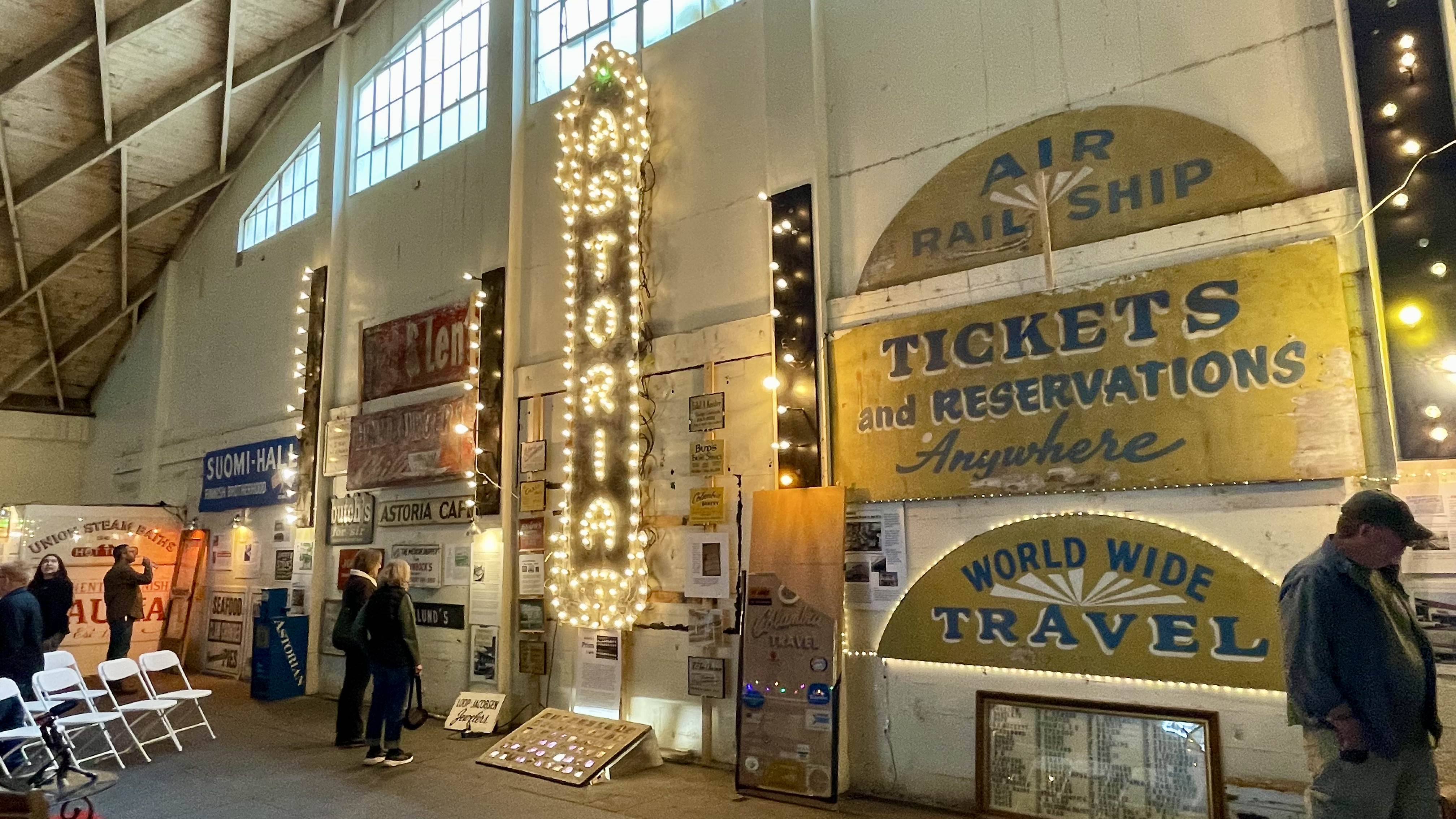A veteran Astoria police officer prepares for new role in homeless outreach
Published 9:45 am Monday, December 16, 2024

- Officer Kenny Hansen has had a 36-year career with the Astoria police.
For Officer Kenny Hansen, every day of his 36-year career with the Astoria Police Department has been different.
“No day is really ever the same,” he said. “It’s constantly changing. You can be going from nothing going on one minute to something really big going on the next.”
From the age of 5, Hansen had dreamed of joining law enforcement. And that idea of facing the unknown has drawn him in, from his first ride-along at 13 to becoming a fully fledged officer at 24.
“It’s not often a person gets to, you know, have their dream job from when they were a little kid,” he said.
In the early to mid-1990s, Hansen described downtown Astoria as “kind of rough and tumble.” Despite a much lower volume of calls back then, the police responded more frequently to reports of illegal drug sales, especially at local bars.
“Eventually, that was all weeded out, and there was a transformation of the downtown to what you see today,” he said.
Biggest changes
But the biggest changes have been in the technology officers use. Hansen started off with a revolver in his holster, instead of a semi-automatic. With no computers in police vehicles, and a lack of streamlined electronic services, all reports were handwritten. The radios officers used to communicate had only two channels.
Today, many locals know Hansen as the police department’s homeless liaison — the go-to person for interacting with people living on the streets or in the woods.
He stepped into that role in 2015. On any given day or for any given warning or citation, homeless people can be heard asking for Hansen. What’s helped him build trust and rapport, he said, is “being real, being sincere, actually caring.”
“You know, they look to me for guidance and help,” he said. “Some of our homeless population lack structure in their younger lives, and in some ways, I become a friend to some. To some, it’s like a parent, you know? It’s just someone there they can always talk to and trust. Someone who’s going to be honest with them.”
In that role, Hansen has seen many success stories. He recalls a family of three — a mother and child, along with the mother’s boyfriend — who had been living in a tent in the Alderbrook area several years back.
Hansen got them connected with Helping Hands, where they finally were able to get a roof over their heads. And in that time, with the help of a friend who was an ordained minister, he helped facilitate the couple’s marriage.
“They got married down at the park behind Helping Hands,” he said. “And my mother-in-law, she provided a ring for the lady, and they stayed there for a little while at Helping Hands.
“Then they eventually moved to Sunset Beach RV Park, and the wife, she works in home health care, and the husband works in maintenance. So they’re both employed now. They’re doing well.”
Along with the bright spots, Hansen has also faced many challenges. The most frequent, and most frustrating for him, is trying to assist people who are resistant to help.
“They all want help in a way,” he said. “But they’re not quite ready for help in their own mind. I think that’s the most difficult thing to them, knowing that they need help, me wanting to get them out, but them not being ready to get help.”
But Hansen doesn’t let that keep him from consistently checking back in with everyone and reminding them that he’s there to help whenever they’re ready. If they don’t know where to go, he’s ready to connect them with available resources.
“We lack shelter,” he said. “That’s another problem, a countrywide problem. With LiFEBoat Services, they now have shelter every night, and they’ve taken a lot of the population that used to be in doorways and things downtown and given them a place to be during the night. Another place is the Columbia Inn, and that’s been a great asset and resource, too.”
When those shelters are full, however, officers try to navigate the best way to enforce Astoria’s camping restrictions. From 7 a.m. to 9 p.m., homeless people can receive citations for camping on public property.
“We try to educate first before taking any enforcement action,” Hansen said. “And in some situations, even the enforcement part is difficult, because we issue a citation to the person for camping, things like that, and it just adds to the problem a little bit because they don’t have the resources to pay and things like that.
“We advise them, generally, and try to get them to at least pack their camp up for the day. When the weather is bad, when it’s raining, blowing, stuff like that, we’re much more lenient, because we do understand. We’re people also and understand that, you know, it’s important to stay dry and have some sort of shelter.”
Hansen often stands by an “educate first” approach, comparing the spirit of the law to the letter of the law.
“Going with the letter of the law is actually citing them for it or charging them for what they’re doing,” he said. “Most of the time, a conversation will fix the problem, as with a traffic stop, even. You can give a warning, or you can give a ticket. And depending on the situation, a lot of times the warning will suffice.”
Homeless outreach
Though his time on the force will end at midnight on Dec. 31, Hansen isn’t fully retiring. Starting in January, he will serve as the homeless outreach program manager for Clatsop Community Action, a social services agency.
Police Chief Stacy Kelly said Astoria police will continue to have a designated homeless liaison. Hansen hopes to help whoever takes the position transition into the role and give them tips while he begins to work with Clatsop Community Action.
“I’m going to be able to be out there exclusively with our unsheltered population, and be able to focus on exclusively getting them resources, other things they need,” he said. “Something I’m hoping to do is work with the law enforcement agencies to help reduce some of the camping violations and things like that. I have some ideas in the works I want to try, and I’m excited to do those.
“Most of our unsheltered population knows what I’m going to be doing. They’re excited about it, and I think I will be able to make a difference out there, because I will be out there still as Kenny. Everybody knows me as Kenny.”





